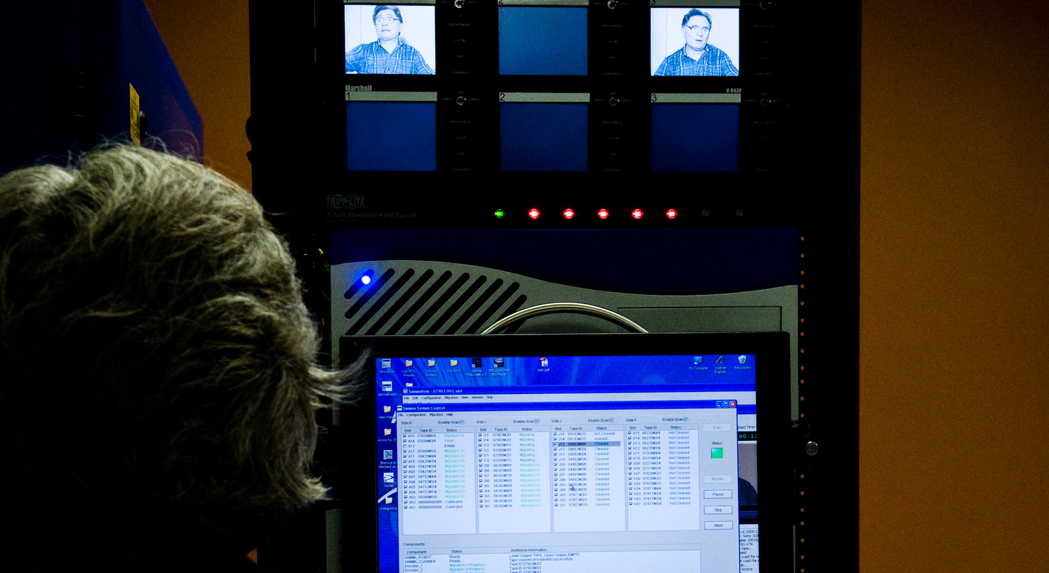Indexing Training Session for New Holocaust Collection and Aegis Trust Rwanda Begins Jan. 21

USC Shoah Foundation’s research department will host seven new Holocaust indexers and three Aegis Trust Rwanda staff members this month for a training session on indexing Holocaust and Rwandan testimonies.
The training represents several “firsts” for USC Shoah Foundation. It is the first time indexers will be trained to complete their work both onsite (in the USC Shoah Foundation office) and remotely.
For the first time, Holocaust testimonies not recorded by the Shoah Foundation will be indexed.
The session also marks the first time Rwandan and Holocaust indexers will be trained together.
USC Shoah Foundation’s method of indexing is very specific. Indexers tag each minute of testimony with terms that indicate what the survivor is talking about at that moment, such as names of people, places, and any of 62,000 possible keywords and phrases. Indexing allows visitors to the Visual History Archive to retrieve entire testimonies or search for specific sections across the 52,000 testimonies in the archive.
Seven trainees who have extensive experience in Holocaust and genocide research were selected to index USC Shoah Foundation’s new collection of 1,400 video testimonies preserved by Jewish Family and Children’s Services Holocaust Center (JFCS) based in San Francisco. The testimonies have been collected in a variety of audiovisual formats since 1980, after the establishment of the Holocaust Center of Northern California. The project’s longtime leader, Lani Silver, was an early advisor to the Shoah Foundation.
The indexers are based in Southern California, the Bay Area, and Pennsylvania. Once the training is over, they will log in to the indexing system online and work from home. USC Shoah Foundation hopes to have the entire JFCS collection digitized, indexed and catalogued in the Visual History Archive by the end of 2015.
The Aegis Trust Rwanda staff members will learn indexing methodology and archive building to strengthen their capacity to record, index and preserve testimonies of Rwandan Genocide survivors in the future. The Shoah Foundation’s 65-testimony Rwandan genocide collection, of which 50 are from the Kigali Genocide Memorial Center, is already indexed; the training will continue to inform Kigali Genocide Memorial Center (KGMC)’s own testimony archive.
KGMC was established and is run by Aegis Trust.
For the Aegis Trust Rwanda group, their training is part of the Rwanda Peace Education Program (RPEP), which is led by multiple international partners to develop peace education in Rwanda. USC Shoah Foundation’s role in RPEP is to help KGMC in strengthening the capacities of its own growing genocide archive and engage in collaborative educational programs that include teaching with testimony and the use of the Institute’s educational platform IWitness in Rwandan schools.
At the three-week training, held at USC Shoah Foundation’s office on the University of Southern California campus, the JFCS and KGMC groups will receive instruction and demonstrations from Shoah Foundation staff on the process of indexing. They will work as a group, in small groups, and finally individually to develop their skills.